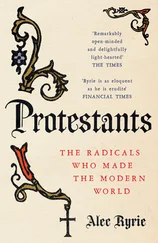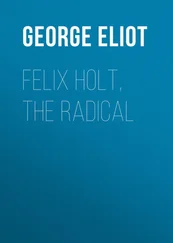On 4 June 1942, Heydrich died at 4:30AM from blood poisoning and four days after his death, about 1,000 Jews left Prague in a single train, which was designated “AaH” ( Attentat auf Heydrich , or Assassination of Heydrich) in “honour” of Heydrich’s death. This transport was officially destined for Ujazdów in the Lublin district, Poland, but was gassed at the Bełżec death camp. The members of Odilo Globocnik’s resettlement staff henceforward dedicated the murder programme to Heydrich’s memory under the code name “Einsatz Reinhardt”. 2
Heydrich’s body was transported from Prague by special train to Berlin and his funeral on 9 June 1942 was the grandest of any funeral ceremony conducted during the history of the Third Reich, held in the Mosaic Hall of the Reich’s Chancellery on Vos-Strasse. Following the funeral oration delivered by Hitler, the coffin was transported through the streets of Berlin on a gun carriage towed by a half-track to a simple grave in Invaliden cemetery. As Heydrich was being buried Hitler ordered the complete destruction of the little Bohemian village of Lidice as retaliation for the assassination of Heydrich on 9 June 1942, under the command of SS- Hauptsturmführer Max Rostock.
This was originally published on the Holocaust History Society website.
Chris Webbis a Senior Fellow at CARR and founder of the Holocaust Historical Society.
1Robert S. Wistrich, Who’s Who in Nazi Germany (London: Routledge, 1995).
2Gerald Reitlinger, The Final Solution (London: Vallentine, Mitchell & Co., 1968).
Henry Mead
In his 1945 work The Open Society and its Enemies, Karl Popper famously attacked what he saw as the intellectual roots of fascism. Tracing a lineage from Plato to its modern progenitors, he asserted that ‘Hegel’s hysterical historicism was the fertiliser from which totalitarianism was grown’. 1Popper’s chapter on “Hegel and the New Tribalism” includes a long list of charges, questioning Hegel’s motives as an employee of the Prussian State, his style and knowing use of ‘imbecile fancies’, and his contributions to what Popper termed “historicism”, nationalism, and finally to modern totalitarianism.
Popper, historicism and Hegel’s critics
For Popper, the term “historicism” referred to the notion of a fixed path running through history, a pattern predetermined that would progress inexorably to a telos . In his view, Hegel had inherited the Platonic fixation on forms via the immanent essentialism of Aristotle. In his phenomenology, his elision of subject and object, and contraries of all sorts, involved a dangerous absolution of all moral or epistemological distinction. According to Popper, the theodicy presented in Hegel’s philosophy of history was ruthless in its optimism, relegating suffering and moral evil to necessary way-stations on a path towards the absolute.
In Popper’s account, Hegel’s “historicism” combines the Aristotelean notion of entelechy with the German Romantic nationalism of Herder and Fichte; one of its results, in a later generation, was fascism. In this view, the myth of the nation was justification of the emergent state, an embodiment of the absolute that naturally requires enemies and warfare in its formation. Aggressive actions were exempt, in their providential status, from moral censure. Such processes, moreover, were precipitated by certain Great Men, also above morality in their unknowing enactment of historical will, and worthy of celebration for their heroic life and exploits. Popper sceptically recounts Hegel’s plan of history culminating, following periods of Oriental despotism and Classical democracy, in the “German Age”. With the Reformation at the threshold, modernity finds its apogee in Prussian statism. As Bertrand Russell wrote, also in 1945, ‘It is odd that a process which is represented as cosmic should all have taken place on our planet, and most of it near the Mediterranean’. 2Popper was, however, less ironic than condemnatory: in Popper’s opinion, Hegel’s idea of the state as the manifestation of the Absolute spirit subordinated individuals within civil society to its will and authority. All these aspects seemed to Popper to lay the foundations of modern totalitarianism.
Such an attack by the Austrian-born Popper had a great influence in the English-speaking world, consolidated by similar commentaries by Russell and Isaiah Berlin; for many in Britain and America, Hegel’s reputation after World War II was at its lowest ebb. 3It is worth noting, however, that attacks on Hegel on ideological grounds began well before this nadir—as Kirk Willis has shown, foreboding commentaries regarding the geopolitical outcomes of Hegel’s thought are traceable back into the 19th century. As early as 1838, the British and Foreign Review described Prussian ministers as being ‘filled with Hegelian casuistry’; comments in the intellectual press on Hegel’s conservatism continued through the 1840s and 50s. 4Bismarck’s expansionist policies cemented this wariness: a piece in the Contemporary Review of 1899, for example, noted that Bismarck merely ‘carried out the general ideas of one of the greatest philosophers of the counter-Revolution—Hegel’. 5
Intimations of militarism came to a head during the Great War: by 1915, the reaction in Britain led to the forced resignation of the Lord Chancellor, Richard Burdon Haldane, an Idealist philosopher, owing to suspicions over his “Germanophilia”. 6Baron von Hugel’s The German Soul (1916) linked Hegelianism with the ‘barbarous excesses of the German mentality now at work’, 7as did John Dewey, in German Philosophy and Politics (1916). George Santayana went further in Egotism in German Philosophy (1915), which blamed the “egoism” of German thought from Kant onwards for German aggression: ‘a spirit of uncompromising self-assertion and metaphysical conceit which the German nation is now reducing to action’. 8In 1917, Leonard Hobhouse identified Hegel’s ‘metaphysical theory of the state’ for state militarism as a direct cause of the Great War. 9
Neo-Hegelianism and its fascist influence
The history of fascism begins in the same period. While the philosophical pre-history of Nazism owes much to the German intellectual context, there is no doubt that Hegelianism also contributed to the first, non-German forms of Fascism, perhaps most conspicuously in the adaptation of Idealism in Italy, notably by Giovanni Gentile. Gentile managed to connect Hegel to Mussolini’s project within a new system he named “actualism”. By emphasising the corporative element in Hegel’s Philosophy of the Right (1821), Gentile could provide a rationale for Mussolini’s state and leadership. As recounted by A. James Gregor, ‘Gentile’s Actualism gave every appearance of being capable of providing a synthesizing philosophical rationale for emerging Fascism’. By 1918, Gentile could foresee:
a revolutionary “new state” that would be the expression of the “fully rational and concrete” national will of Italians in their collectivity. In that “revolutionary state,” politics and morality, parochial and national interests, would combine in such a fashion that individuals would fully identify themselves with its actions. That new state would be a spiritual reality in which all would find their place. 10
There was then a neo-Hegelian lineage leading into the new ideological category of “Fascism”; not just for Gentile, but for various intellectuals of Mussolini’s Italy, adaptations of Hegel provided a logic for the reconciliation of the individual, the industrial communities, and the state under Fascist rule. As Gregor goes on, ‘the community—as the state—that served as the grounds of individuation for the individual was not a construction that was inter homines , between members of the community, but an immanent reality that arose out of members themselves. It was interiore homine …The community was understood to be at the core of the individual’. 11Italian fascism thus provided a practicable model for a totalitarian regime based on a Hegelian tradition as the Nazi movement reached its maturity in the 1930s.
Читать дальше












